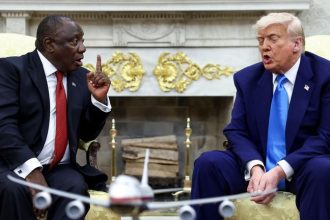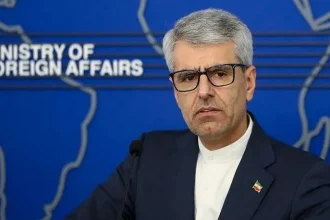India has marked a major milestone in its space journey as Group Captain Shubhanshu Shukla became the first Indian in 41 years to travel to space, joining the Axiom-4 (Ax-4) mission that launched successfully from the Kennedy Space Center in Florida on Wednesday morning.
According to the BBC, the 39-year-old Indian Air Force pilot now holds the distinction of being the first Indian to reach the International Space Station, a feat that comes decades after Rakesh Sharma flew aboard a Soviet Soyuz spacecraft in 1984.
Speaking from space shortly after lift-off, Group Captain Shukla said, “We’re back in space after 41 years, and what an amazing ride it’s been. On my shoulder, I carry the Indian flag. This is not just my journey, it’s the beginning of India’s human spaceflight programme. I welcome all my fellow Indians to be a part of this journey.”
The Ax-4 mission, a private commercial flight by Houston-based Axiom Space, is being led by veteran NASA astronaut Peggy Whitson and also includes crew members from Poland and Hungary—both nations returning to space after long gaps.
The mission is being undertaken in partnership with NASA, SpaceX, India’s space agency ISRO, and the European Space Agency.
Launched aboard a SpaceX Crew Dragon capsule atop a Falcon 9 rocket, the spacecraft is expected to dock with the ISS just over 26 hours after takeoff.
Prime Minister Narendra Modi celebrated the successful launch, saying in a statement, “Group Captain Shukla carries with him the hopes and aspirations of 1.4 billion Indians. This moment is a proud step forward for our space ambitions.”
Born in Lucknow on 10 October 1985, Shukla joined the Indian Air Force in 2006 and has over 2,000 flying hours under his belt, having flown aircraft including the MiG, Jaguar, Sukhoi, Dornier, and Hawk.
His seat aboard Ax-4, secured by ISRO at a cost of ₹5 billion ($59 million), marks a vital training step for India’s Gaganyaan mission—the country’s first indigenous human spaceflight scheduled for 2027. India also has plans to launch a space station by 2035 and send astronauts to the Moon by 2040.
During his two-week stay aboard the ISS, Group Captain Shukla will pilot the mission and conduct a series of scientific experiments—seven of them from India. These include studies on microgravity’s effects on crop seeds and microalgae, muscle deterioration in space, cognitive behavior in low gravity, and the resilience of tardigrades (microscopic animals) in space conditions.
Former NASA scientist Mila Mitra emphasized the importance of the experiments, saying, “These studies will expand our understanding of biology in space and guide long-duration missions in the future.”
ISRO is also arranging a special interaction between Shukla and Indian students while he is in orbit, with a virtual meeting with Prime Minister Modi also being considered.
For Shukla, this journey is more than a personal achievement. “As I go into space, I carry not just instruments and equipment—I carry the hopes and dreams of a billion hearts,” he told reporters before launch.
India now looks ahead with greater anticipation as it reclaims a place in human space exploration, propelled by one man’s journey and the ambitions of a rising space power.







